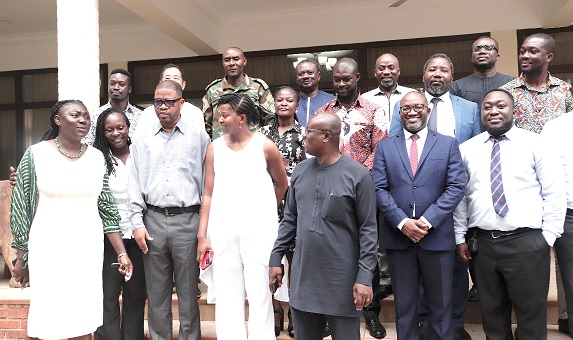
Nation begins process to join UNESCO network on education
The nation has begun developing a roadmap to join a UNESCO global network on education for sustainable development (ESD) by 2030.
The process for membership involves the development of a country’s initiative to mainstream ESD for sustainable growth.
The five priority action areas of the ESD are - advancing policy, transforming learning environment, building capacities of educators, empowering and mobilising youth, and accelerating local level actions.
It places emphasis on the role of education in achieving all the 17 Sustainable Development Goals (SDGs) of the UN.
Currently, the ESD-Global Network 2030 has a membership of 87 countries across the world.
Event
At a three-day workshop to fashion out a Ghana Country Initiative under the ESD in Accra yesterday, the Secretary-General of the Ghana Commission for UNESCO, Ama Serwah Nerquaye-Tetteh, said in an era where education was threatened by many factors, it was necessary to increase the quality and relevance of learning to the advancement of sustainable development.
“That is why UNESCO is guiding all member states to refocus attention on education and learning for sustainable development outcomes.
“By using the ESD implementation framework, member states are asked to assess and re-align the goals, values and outcomes of their respective education systems,” she said.
Ms Nerquaye-Tetteh said the country had shown clear commitment to limiting the impact of climate change and the promotion of sustainable development.
She further said that the ESD network would provide a platform for the exchange of ideas on four main objectives — knowledge sharing and mutual learning, advocacy, collaboration and monitoring and evaluation.
“Indeed, accelerating ESD to meet SDGs is essential, given that there is not much time left to achieve the goals.
“In view of this, our focus is to complete our country initiative and vigorously implement the other strategies alongside under the ESD implementation framework.
“Again, this is an opportunity to appropriately document the work that is already being done in the nation's ESD space, while seeking innovative ways to build a national ESD scope that would have a country-wide impact,” Ms Nerquaye-Tetteh added.
Effort
The Head of Education, UNESCO Ghana Office, Prosper Kwasi Nyavor, said a lot had been done on ESD in the country, and that “we need to identify all the initiatives that are happening across the country”.
He said the process of joining the network of 87 countries was catching up for which reason the nation had to be part.
“I know a lot has been done in the country.
The knowledge is already here, we are just coming to put it together,” Mr Nyavor said.
For his part, a Principal Programme Officer (Education), at the Ghana Commission for UNESCO, Moses Y. Gemeh, also said that the ESD would facilitate the achievement of the SDGs.
